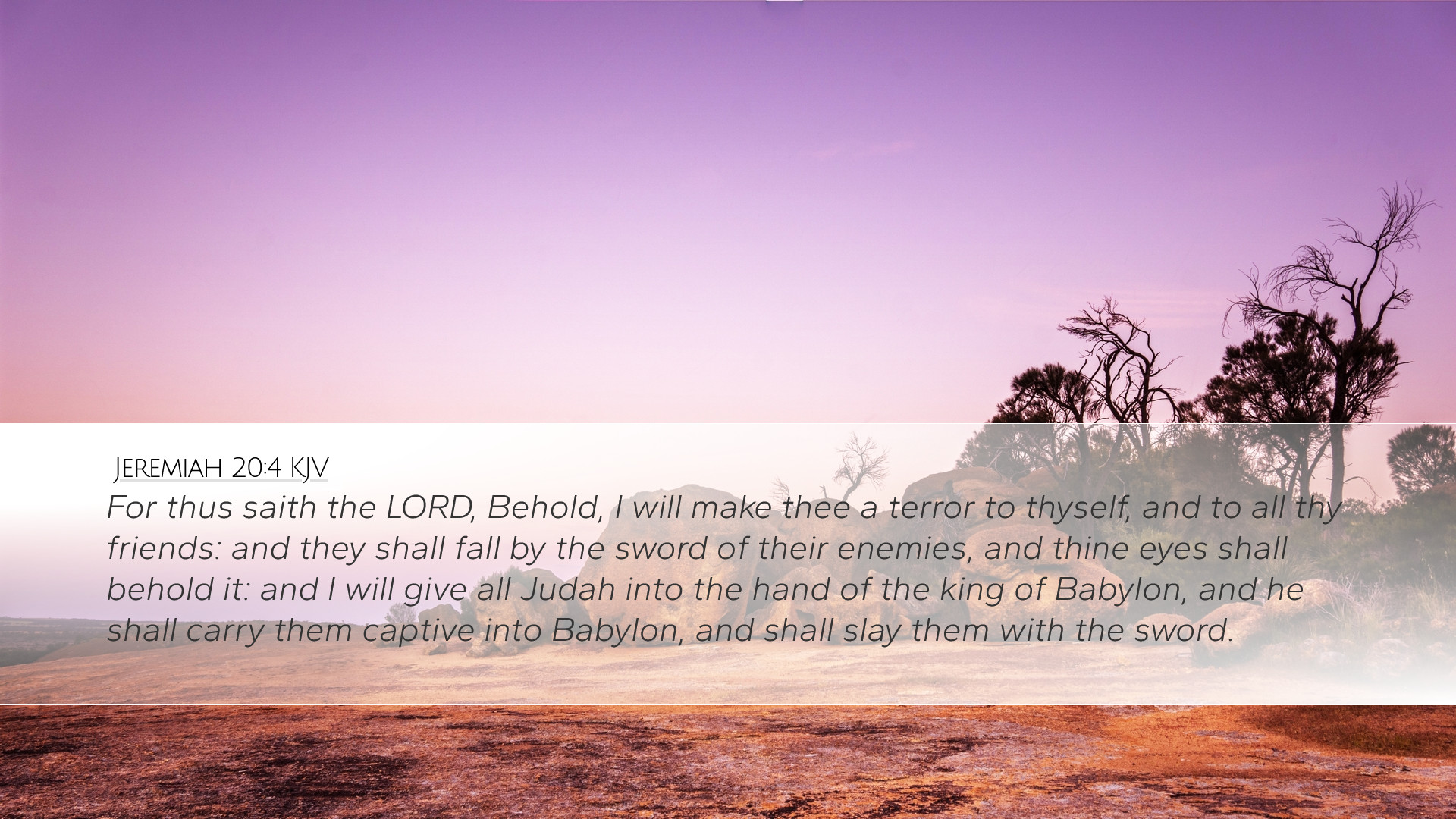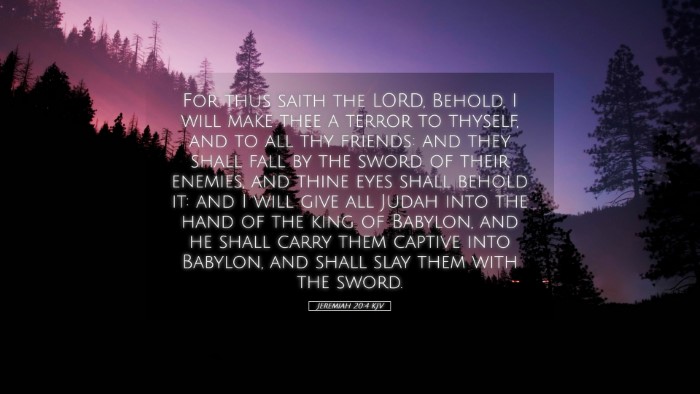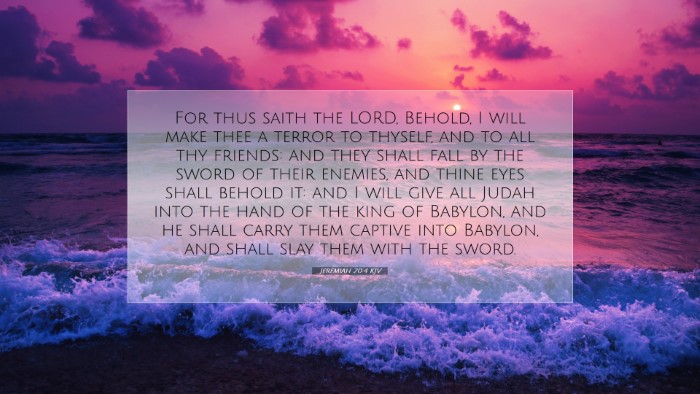Commentary on Jeremiah 20:4
Verse: Jeremiah 20:4 - “For thus saith the LORD, Behold, I will make thee a terror to thyself, and to all thy friends: and they shall fall by the sword of their enemies, and thine eyes shall behold it: and I will give all Judah into the hand of the king of Babylon.”
Context and Overview
The book of Jeremiah is filled with prophecies and oracles that address the impending judgment upon Judah due to their unfaithfulness to God. In chapter 20, we find Jeremiah speaking after being beaten and imprisoned by Pashur, the priest. This chapter reflects the profound struggle of a prophet confronted with both personal anguish and national tragedy.
Understanding the Terror of Pashur
- The Role of Pashur: Pashur, acting as a chief officer in the house of the LORD, represented the religious establishment that turned against Jeremiah. His actions signified not only personal antagonism but also a broader rejection of God’s message.
- Implications of Divine Judgment: God, through Jeremiah, warns Pashur of a fate that will cause terror. The judgment entails not just physical defeat but a deep, personal agony that will astound former allies.
Interpretations from Notable Commentators
Matthew Henry
Henry comments on the nature of Pashur's impending doom, noting that his previous position as a ruler will not shield him from God's judgment. He emphasizes that when God declares judgment, it can lead to a state of terror—the terror that even friends may betray, and enemies prevail. Henry highlights that this is both a literal and moral satanic upheaval, observed by Pashur whose own fate is intertwined with that of Jerusalem.
Albert Barnes
Barnes further emphasizes the prophetic element of this verse, reflecting on the grievous consequences of rebelling against God's word. He illustrates the terror that comes as an unavoidable result of divine justice. His commentary conveys the dual aspect of this prophecy—specific to Pashur and broadly applicable to anyone who opposes God's designs. Barnes states that it serves as a warning to all leaders and prophets to adhere to God's will, for the price of defiance is steep.
Adam Clarke
Clarke provides a detailed examination of the psychological torment that Pashur will face as God makes him a "terror to himself." Clarke notes that while Jerusalem may seem stable, the true terror lies in the internal destruction that arises from rejecting divine warnings. He ties Pashur’s fate to the larger narrative of Babylon's ascendancy, arguing that the spiritual blindness of rulers leads to national catastrophe.
Theological Significance
This verse serves as a commentary on the nature of prophetic ministry. It emphasizes the emotional and spiritual toll that comes with faithfully delivering God's message in a hostile environment. In broader theological terms, it addresses the themes of judgment, mercy, and the intersection of divine sovereignty and human responsibility:
- Judgment of God: This illustrates God's righteous judgment against complacency and unfaithfulness.
- Fallibility of Human Leaders: Pashur, a high priest, represents those in positions of spiritual authority who neglect their responsibilities before God.
- Prophetic Suffering: The verse captures the loneliness of a prophet—a theme pervasive throughout the Scriptures. Their faithfulness often leads to personal suffering.
Application for Today's Readers
Modern readers and leaders are invited to reflect on several practical lessons that arise from Jeremiah 20:4:
- The Weight of Responsibility: Those called to leadership must understand the significance of their role in God’s plan.
- Importance of Faithfulness: There can be costs associated with fidelity to God’s truth; however, the greater danger lies in disobedience.
- Awareness of Consequences: Understanding that our actions have ramifications that extend beyond ourselves encourages a sober reflection on leadership and discipleship.
- Hope in Despair: Though Pashur faced judgment, God’s ultimate purpose includes restoration, a constant truth throughout Jeremiah’s warnings.
Conclusion
Jeremiah 20:4 stands as a sobering reminder of the reality of divine judgment and the serious consequences of rebelling against God. The insights from Matthew Henry, Albert Barnes, and Adam Clarke provide a profound depth of understanding that extends beyond this historical moment into personal and communal ramifications. As believers engage with this text, they are called to a deeper fidelity to God’s truth, a recognition of the weight of spiritual authority, and a commitment to uphold His words amidst societal challenges.


